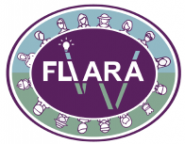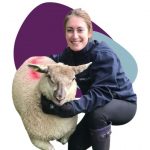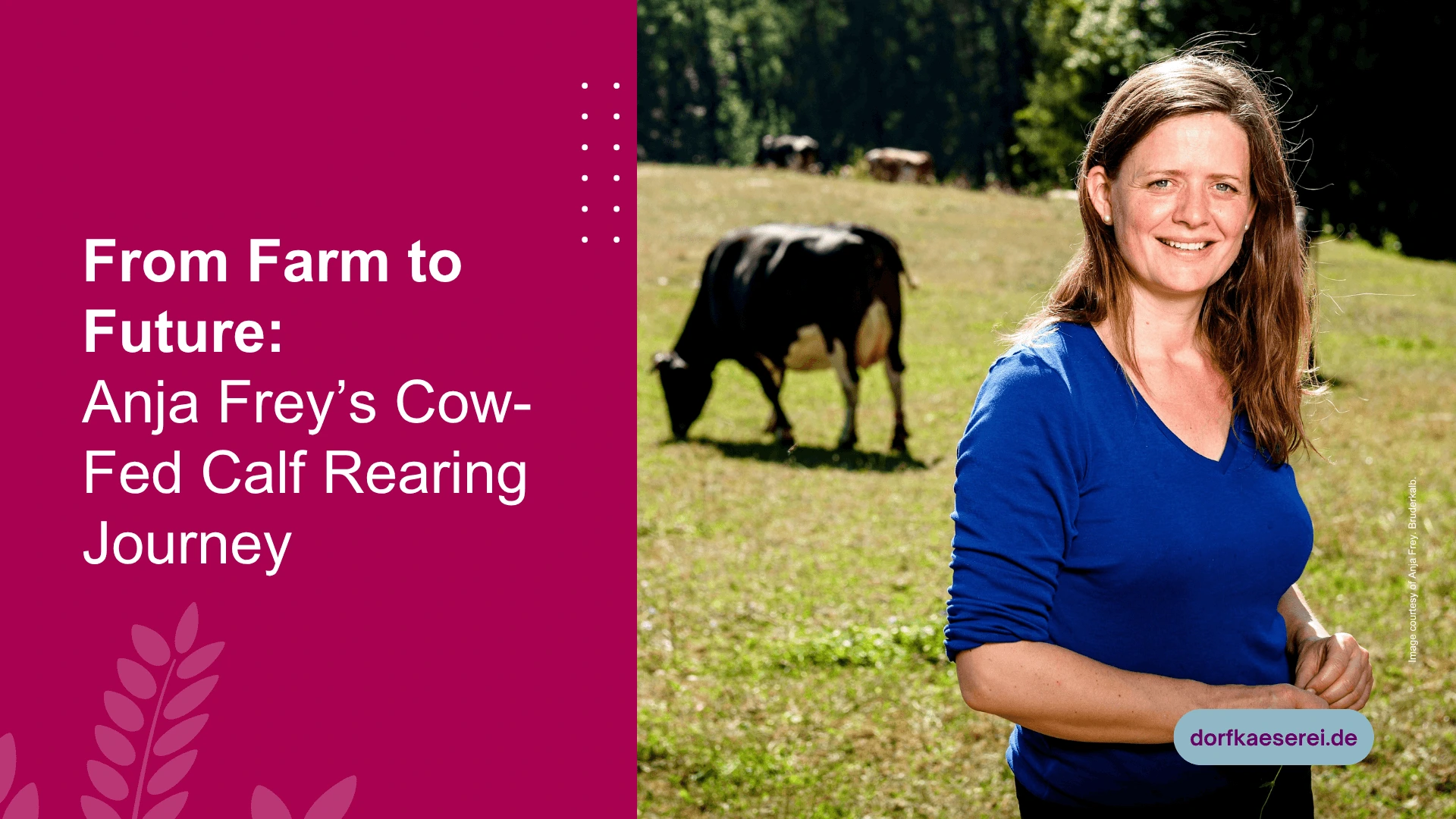When Anja Frey speaks about her work, her voice carries a mix of determination and warmth. A farmer, value chain manager, and passionate advocate for animal welfare, she has spent more than two decades reshaping the way calves are raised on dairy farms. Today, she leads a pioneering effort in southern Germany that combines sustainable farming, high animal welfare standards, and fair market opportunities for rural communities.
From Family Farm to Regional Movement
Born and raised in Germany, Anja trained as a certified master farmer (Landwirtschaftsmeisterin) before taking over a Demeter-certified dairy farm with her husband. Together, they managed direct milk sales to households and local retailers. But it was their decision, more than twenty years ago, to introduce cow-fed calf rearing that would transform their farm—and later, their entire region.
“In our system, calves stay with their mothers instead of being separated at birth. They drink directly from the udder, grow up within the herd, and develop in a natural, social environment,” Anja explains. “At the time, hardly anyone in the dairy sector in Germany was doing this.”
Her vision was simple yet revolutionary: to rear calves ethically, sustainably, and in line with their natural behaviour, while ensuring that farms could remain economically viable. The concept, though demanding, quickly drew attention from neighbouring farmers who wanted to adopt similar practices.
Turning an Idea Into an Initiative
What began as a small experiment on her own farm soon evolved into a regional marketing initiative. Together with the Geifertshofen Village Dairy, the Hohenlohe Bruderkalb Initiative, and the Schwäbisch Hall Producers’ Association, Anja helped develop a premium label for veal and beef from cow-fed calf rearing.
This new system not only guaranteed high animal welfare standards but also kept transport times to slaughterhouses minimal. The premium label ensured fair, cost-covering prices for both male and female calves—something previously difficult to achieve in the meat sector.
But creating a market from scratch was no easy feat. “It takes patience and an enormous amount of persuasion,” Anja admits. “You need partners in processing and retail who are willing to take risks. And you need to prove that customers value the added effort.”
Her leadership and persistence paid off. Over the years, the initiative grew steadily, inspiring more farms across Baden-Württemberg and beyond to adopt cow-fed rearing.
A Quiet Revolution Led by Women
Although men were often present in decision-making, Anja notes that much of the hands-on organising, negotiating, and building of the initiative was carried out by women. They designed the label, held talks with processors and retailers, and became visible role models for sustainable change.
“What made the difference,” she reflects, “was that the ideas came from within the farming community, especially from women who wanted to create a better future for their animals, their farms, and their families. It wasn’t about external rules being imposed. It was about genuine conviction.”
Challenges on the Path of Innovation
Despite the success, challenges remain. The high costs of cow-fed rearing and the complexity of marketing niche products continue to test the resilience of farmers. On a personal level, Anja has witnessed the difficult balancing act many women in agriculture face.
“Too often, women must choose between education, family, and running a farm,” she says. “We need better support systems—childcare, flexible training opportunities, and recognition of women’s work in agriculture. Without this, many innovations remain untapped.”
Connecting With FLIARA
When Anja first heard about the FLIARA project, which highlights the innovative role of women in farming across Europe, she felt an immediate connection.
“I thought, wow, this is exactly what we need—an EU-wide initiative that collects women’s stories, analyses the barriers, and pushes for policy changes,” she says. “It gives us hope that our experiences can influence a shared direction for the future.”
Through FLIARA, Anja hopes that women’s contributions in agriculture—so often invisible—will gain recognition and support, enabling more young women to choose farming as both a career and a livelihood.
Looking Ahead
Anja’s goals remain ambitious. She wants to see the cow-fed calf rearing system expand further across Germany and Europe, supported by sustainable markets and fair pricing. She envisions continued collaboration between farmers, processors, retailers, and policymakers to make ethical meat production the norm rather than the exception.
Her advice for aspiring innovators in rural areas is simple yet profound: “Start small, but stay persistent. Work with others, share your experiences, and don’t give up after the first obstacle. Change takes time—but if it grows from conviction, it will last.”
For Anja Frey, innovation is not a flashy concept. It’s a patient, steady practice rooted in everyday farming life, carried forward by a belief that better ways of working are always possible when communities come together.



